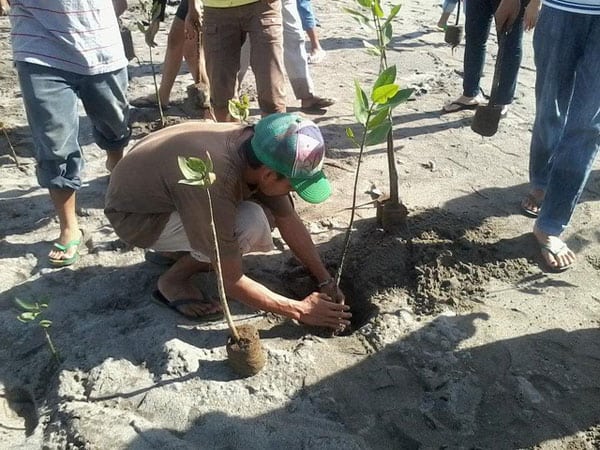
July 24, 2018; Fast Company
Last September, in NPQ, we profiled a book by Atlantic Philanthropies founder Chuck Feeney, who famously promoted the philosophy of “giving while living.” This involved spending down the entirety of the corpus of the foundation during the founder’s lifetime. In that article, we noted that one lesson of the booklet on Feeney’s philosophy that the Atlantic Philanthropies published last year was that “a limited life foundation may create an incentive to find ‘perpetuity’ in other ways.” For example, $2.8 billion—or 35 percent of total grants—went to capital projects. As foundation president Christopher Oechsli explains, Feeney “liked creating tangible assets and institutions to use like major tools. Buildings also appealed to him…because of his oft-asked question, ‘What have we got to show for our investments?’”
But as Ellie Anzilotti points out in Fast Company, buildings aren’t the only way that the influence of Feeney and the Atlantic Philanthropies will extend beyond the foundation’s close in 2020: “In 2015, The Atlantic Philanthropies seeded over $660 million to the Fellows program.” Again, using $8 billion in total giving as a baseline, this is a not-insignificant investment, amounting to roughly eight percent of total foundation assets.
Anzilotti continues:
Today, seven cohorts of fellows across the world are at work on issues ranging from racial equity to social and economic equity to health equity. The organization recently announced that the program has now grown to 267 fellows worldwide, and will continue to expand over the next several decades. They anticipate that the Fellows program will grow to over 1,000 global fellows strong in the next 20 years—long after the philanthropy has shuttered for good.
Of the seven cohorts, the first of these that was launched was the Atlantic Fellows for Equity in Brain Health. The goal of the fellowship is to support “social and public health solutions to reduce the scale and adverse impact of dementia,” which currently affects 50 million worldwide, with the impact greatest on vulnerable and disadvantaged populations.
“The fellows,” notes Anzilotti, “are generally mid-career professionals who have a proven track record of impact in a specific area, and who are determined to better understand and further their work in a global context.”
Sign up for our free newsletters
Subscribe to NPQ's newsletters to have our top stories delivered directly to your inbox.
By signing up, you agree to our privacy policy and terms of use, and to receive messages from NPQ and our partners.
The Atlantic Fellows for Racial Equity cohort seeks to dismantle anti-Black racism in the United States and South Africa. It is staffed by Columbia University in New York City and the Nelson Mandela Foundation in Johannesburg, South Africa. Additional partners are the Haas Institute for a Fair and Inclusive Society at the University of California, Berkeley, the Center for Community Change, and the NAACP Legal Defense and Educational Fund.
A third program, based in Melbourne, Australia, is The Atlantic Fellows for Social Equity, which aims “to tackle the challenge of persistent inequality and social exclusion in Australia and the Pacific, particularly among Indigenous communities.” A program on a related theme, the Atlantic Fellows for Social and Economic Equity aim “to understand the complex causes, nature and consequences of inequalities and develop solutions” worldwide; it is based as the London School of Economics’ International Inequalities Institute. The remaining cohorts focus on health equity issues—one based in Washington, DC, has a global focus (with some focus too on the United States itself). The other two are focused on southeast Asia and South Africa.
The racial equity fellowship was launched in November 2017. It has a budget of $60 million, which it intends to spend out in 10 years, supporting 10 cohorts of racial equity fellows. The first cohort had 29 individuals. Among the prominent US fellows selected are Dara Cooper of the National Black Food and Justice Alliance; Marisa Franco of Mijente; Alicia Garza, a cofounder of Black Lives Matter; Dallas Goldtooth of the Indigenous Environmental Network; and Mary Hooks of Southerners On New Ground (SONG); among others.
Once someone is named a fellow, they remain one for life. According to Bruce Trachtenberg, Executive Producer and Editor for the Atlantic Philanthropies, contends that the Fellows program fosters both intergenerational and international collaboration. “Much of the work of the cohorts is still getting under way,” Trachtenberg notes.
As Anzilotti explains, “the goal of the program…is to give people the tools and resources to get to the bottom of systemic issues, like health and racial inequities, and to build out systemic, transformative solutions. The fact that those solutions may not materialize until long after Atlantic Philanthropies closes its doors testifies to the fact that the organization’s goal was never self-satisfaction: It’s about using its resources to create necessary change for the future.”—Steve Dubb
Disclosure: Bruce Trachtenberg was previously a member of the NPQ board of directors.
Correction: This article has been altered from its initial form to reflect that BOLD will not be participating.













